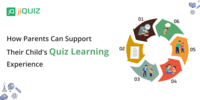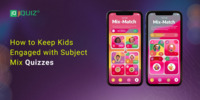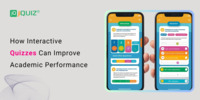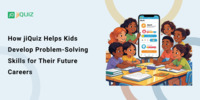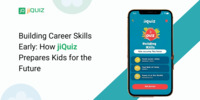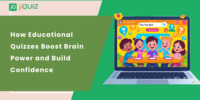- Jul 23, 2025
- Career & Skills
- 471
Share this post on:
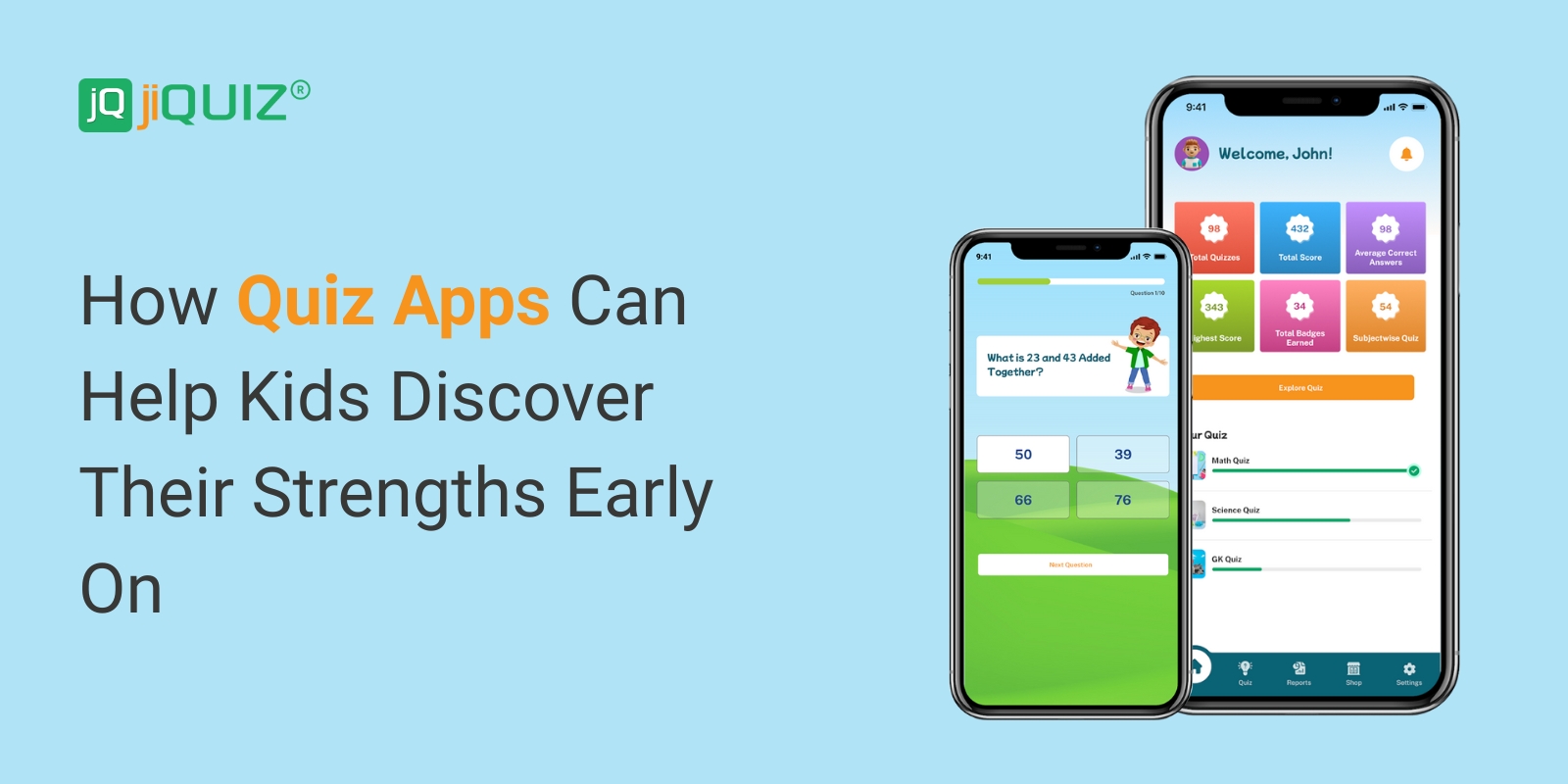
For years, education has often focused on identifying weaknesses and addressing academic gaps. While remediation is important, what about celebrating and nurturing a child’s innate talents and strengths? Discovering these strengths is vital for building confidence, fostering a love of learning, and setting a child up for future success. While traditional methods like observing behavior and discussing interests play a role, a surprising tool is emerging as a valuable ally: quiz apps. In this post, we'll explore how these apps, when used responsibly, can help kids uncover hidden strengths, boost their self-esteem, and inspire them to pursue their passions.
Why Focusing on Strengths Matters
Before we dive into the world of quiz apps, let’s understand why focusing on strengths is so important for kids.
- Increased Motivation: When children feel successful and competent, they're naturally more motivated to learn and try new things.
- Improved Self-Esteem: Recognizing strengths builds confidence and a positive self-image.
- Enhanced Engagement: Identifying what they enjoy and excel at makes learning more engaging and less like a chore.
- Resilience: Understanding their strengths helps children bounce back from challenges. Knowing they have capabilities they can rely on builds resilience.
- Future Success: Strengths-based development can lead to better career choices, happier lives, and a greater sense of purpose.
- Reduced Anxiety: Constantly focusing on shortcomings can lead to anxiety and feelings of inadequacy. Highlighting strengths provides a counterbalance.
The Rise of Strengths-Based Development
The concept of strengths-based development isn’t new. Gallup's CliftonStrengths assessment, originally developed for adults, has gained traction in educational settings. While direct adaptations of the CliftonStrengths assessment for young children are limited due to complexity, the underlying principles are universally applicable. Quiz apps, when designed thoughtfully, can tap into these principles in an age-appropriate and engaging way.
How Quiz Apps Can Help – The Mechanics
So, how do quiz apps actually help identify strengths? Here's a breakdown:
- Age-Appropriate Questions: Well-designed apps use language and scenarios that resonate with children. Questions often focus on preferences, reactions to situations, and enjoyment of activities. For example: "Which would you rather do: build a tower of blocks or draw a picture?" or "How do you feel when you solve a puzzle?"
- Variety of Domains: Good apps don't just focus on academic strengths. They often cover areas like:
- Creative Strengths: Artistic ability, imagination, innovative thinking.
- Social-Emotional Strengths: Empathy, communication, leadership, teamwork.
- Practical Strengths: Problem-solving, mechanical aptitude, organization.
- Intellectual Strengths: Curiosity, logical reasoning, critical thinking.
- Physical Strengths: Coordination, athleticism, dexterity.
- Engaging Format: Many apps use visually appealing graphics, interactive elements, and gamified features to keep children engaged. This makes the experience enjoyable rather than a test.
- Feedback & Reporting: The best apps provide simple, easy-to-understand reports that highlight a child’s potential strengths. These are often presented in a positive and encouraging tone.
- Parent/Educator Resources: Some apps offer resources for parents and educators, providing suggestions for activities and strategies to help children develop their strengths.
Types of Quiz Apps – What's Available?
The market for kid-focused quiz apps is growing. Here are a few categories you might encounter:
- "Personality" Quizzes: These are often simplified versions of personality assessments, designed to identify preferences and tendencies. Caution: These should be approached with a grain of salt and not treated as definitive labels.
- "Interest" Quizzes: These help children discover activities they might enjoy, based on their preferences and inclinations.
- "Skill" Assessments: These quizzes attempt to gauge aptitude in specific areas, such as art, music, or math.
- "Values" Quizzes: These explore what’s important to a child, helping them understand their priorities.
Important Considerations: Navigating the App Landscape Responsibly
While quiz apps can be valuable tools, it's crucial to approach them with caution and awareness.
- Age Appropriateness: Not all apps are created equal. Choose apps specifically designed for children and appropriate for their age and developmental stage.
- Accuracy & Validation: Understand that these quizzes are not scientifically validated assessments. They provide insights, but shouldn’t be taken as absolute truths.
- Privacy & Data Security: Carefully review the app’s privacy policy to ensure your child’s data is protected. Look for apps that comply with relevant privacy regulations (like COPPA in the US).
- Avoid Labeling: Emphasize that the results are suggestions, not definitive labels. Avoid saying things like "You're a leader!" Instead, say, "It looks like you enjoy taking charge and helping others."
- Focus on Exploration: Encourage your child to view the results as a starting point for exploring new interests and activities.
- Balance with Real-World Experiences: Quiz results are a supplement to, not a replacement for, real-world experiences and interactions.
- Open Communication: Discuss the results with your child, encourage them to think critically about the questions and their answers, and address any concerns or misunderstandings.
- Parental Guidance: Supervise your child's use of these apps and be available to discuss the results and provide support.
Beyond the Quiz: Translating Insights into Action
The real value of these apps comes from translating the insights into actionable steps. Here are some ideas:
- Encourage Exploration: If the quiz suggests an interest in art, provide art supplies and encourage your child to experiment.
- Seek Out Opportunities: Look for clubs, classes, or activities that align with the identified strengths.
- Provide Supportive Environment: Create a home and learning environment that nurtures and celebrates your child’s strengths.
- Connect with Mentors: Help your child connect with adults who possess those strengths and can offer guidance and support.
- Celebrate Successes: Acknowledge and celebrate your child’s accomplishments, both big and small.
- Embrace Challenges: Encourage your child to embrace challenges and view failures as opportunities for learning and growth.
- Foster a Growth Mindset: Help your child understand that strengths can be developed and that effort and perseverance are key to success.
Conclusion: Empowering the Next Generation
Quiz apps, used thoughtfully and responsibly, can be a fun and engaging way to help children discover their strengths and unlock their full potential. By focusing on what children can do and celebrating their unique talents, we can empower them to become confident, resilient, and passionate learners. Remember that these apps are a tool – a starting point for a conversation and a journey of self-discovery. Let’s shift the focus from fixing weaknesses to nurturing strengths, and watch our children flourish.

